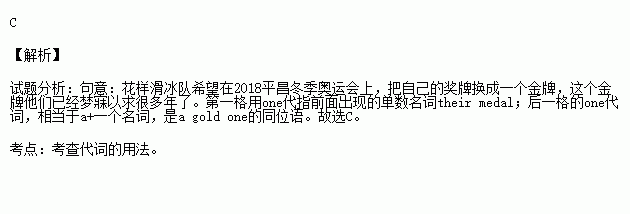Three-dimensional printers are fast becoming everyday devices in the United States. Three-D printers are used to make everything from automobile parts to bone replacements for human patients. American research scientists are now working on creating replacements for living tissue.
Researchers at the Medical University of South Carolina have been working on creating and manufacturing living tissue since 2003.This process is called biofabrication (生物制造) . It requires special printing equipment and a special kind of ink.
Traditional printers require ink to produce an image or design on a piece of paper. For their three-D printer, the South Carolina researchers prepare complex nutritious solutions they call bio-inks. Bio-inks are made of proteins and glucose (葡萄糖) , which normally provides energy for most cells of the body. The researchers also add living cells taken from the animal that will receive the new, printed tissue. The bio-inks are then added to a device that researchers call the Palmetto bio-printer.
Sarah Grace Dennis is one of the researchers at the Medical University of South Carolina. She says new technology, like the Palmetto bio-printer, is a great help to the biofabrication process.
The bio-inks are placed in three dispensers (分配器) , containers, inside the printer. Lasers control both the position of the printing surface and the places where the bio-ink is released.
Michael Yost is a leader of the research team. He says the printing process is fully automated— machine-operated. He says that the Palmetto bio-printer makes it possible to create complex tissue types.
The researchers say bio-printing is still experimental. But they hope in a few years they may be able to print tissue to replace damaged human organs.
But there are still some problems which need to be solved. Some scientists worry about how to get blood to the replacement tissue. The flow of blood is important to keep the printed tissue alive.
Michael Yost hopes that more people will believe in the benefits of biofabrication.
“Tissue biofabrication is a reality, and it is a reality now, and if you come here and you get to see it. You will get to see it. You can’t touch it, but you will see it and think this is real. And this is really human.”
1.What can we know about the bio-inks?
A.They are the necessities of bio-printing.
B.They only contain proteins and glucose.
C.They can be placed in the traditional printers.
D.They are available in our local drugstores.
2.Which of the following is one of the concerns with biofabrication?
A.Researchers can’t find enough living cells of animals to make the bio-inks.
B.The price of the bio-printer is too high and most people can’t afford it.
C.Scientists have some difficulty in getting the blood to the replacement tissue.
D.People are worried about the safety of the biofabrication process.
3.According to Michael Yost, we can infer that .
A.the Palmetto bio-printer can work without power
B.the Palmetto bio-printer has been used to treat the patients
C.the Palmetto bio-printer can only be found in the United States
D.the Palmetto bio-printer will have a bright future in medical use
4.The passage mainly tells us about .
A.the three-D printer and its working principles
B.the bio-inks and their use in bio-printing
C.the spread use of the bio-printer in the USA
D.the growing demand for biofabrication
 阅读快车系列答案
阅读快车系列答案

